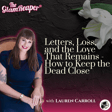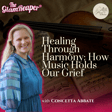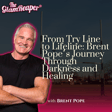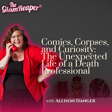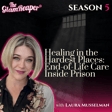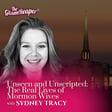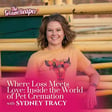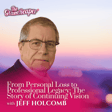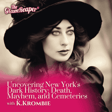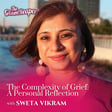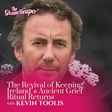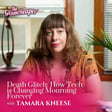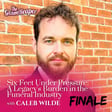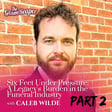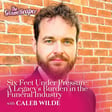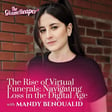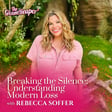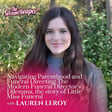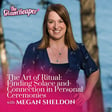
Breaking the Silence: Insights Into Preventing Self-Harm
In this first episode for Season 4 of The Glam Reaper podcast, Jennifer sits down with Dr. Sara Murphy—a death educator, certified thanatologist, bereavement consultant, and expert in suicide and disenfranchised grief with an unconventional journey into the field.
During the discussion, Jennifer and Dr. Murphy touch on their convention sessions, including the groundbreaking launch of safe zone training and a candid exploration of suicide risk in the death care professions.
The conversation takes an emotional turn as Jennifer delves into the challenges of addressing societal issues in the field of death care.
Tune in to this episode for a human perspective on the intersection of psychology, death care, and the intricate threads that bind them together.
Key Topics:
-Diving into prevention strategies with Dr. Sara Murphy
-Empowering funeral service experts through prevention and education
-Enhancing prevention efforts and cultivating awareness on suicide
-Cultivating mental wellness in the funeral industry
-Dealing with emotional distress, fostering psychological well-being, and tackling the aftermath of violent incidents in an educational setting
Notable Words From The Episode:
And I think because we live in a culture that is both in an epidemic of suicide, but also in an epidemic of interpersonal violence, there is this weird shifting between horror and normalization of living like this
- Dr. Sara Murphy
These school shootings and with everything, there's so many facets to it as the point that it's not just clear cut; it's not black and white.
- Jennifer
Timestamp:
[00:00] Podcast Intro
[01:13] Jennifer and Dr. Sara talk about the involvement with the NFDA (National Funeral Directors Association), their presentations at the convention, including the launch of safe zone training and a session on suicide risk in the death care professions
[03:25] Dr. Sara talks about her unconventional path to becoming a certified thanatologist.
[7:36] Jennifer discusses the emotional challenges involved in dealing with societal issues
[09:46] Dr. Sara emphasizes the significance of language in discussing suicide
[11:46] Dr. Sara describes their 14-week, in-person course on suicide, covering classical theories from Freudian and Durkheimian perspectives before delving into a more integrated theory.
[15:04] Jennifer expresses interest in the fascinating topic of psychology and the human brain
[17:04] Dr. Sara discusses their presentation on suicide risk within death care professions at the NFDA
[22:16] Jennifer shares her thoughts on the complex and multifaceted nature of traumatic events.
[29:47] Dr. Sara delves into the impact of mass death events on communities and individuals.
[38:12] Podcast Outro
Connect with Dr. Sara Murphy
Website - https://www.deathdoc.com/
Connect with Jennifer/The Glam Reaper:
Facebook Page - Memorials
https://www.facebook.com/MuldowneyMemorials/
Facebook Page - Pets
https://www.facebook.com/rainbowbridgememorialsdotcom
Instagram - @muldowneymemorials
Twitter - https://twitter.com/TheGlamReaper
Email us - glamreaperpodcast@gmail.com
Listen to The Glam Reaper Podcast on Apple Podcasts:
